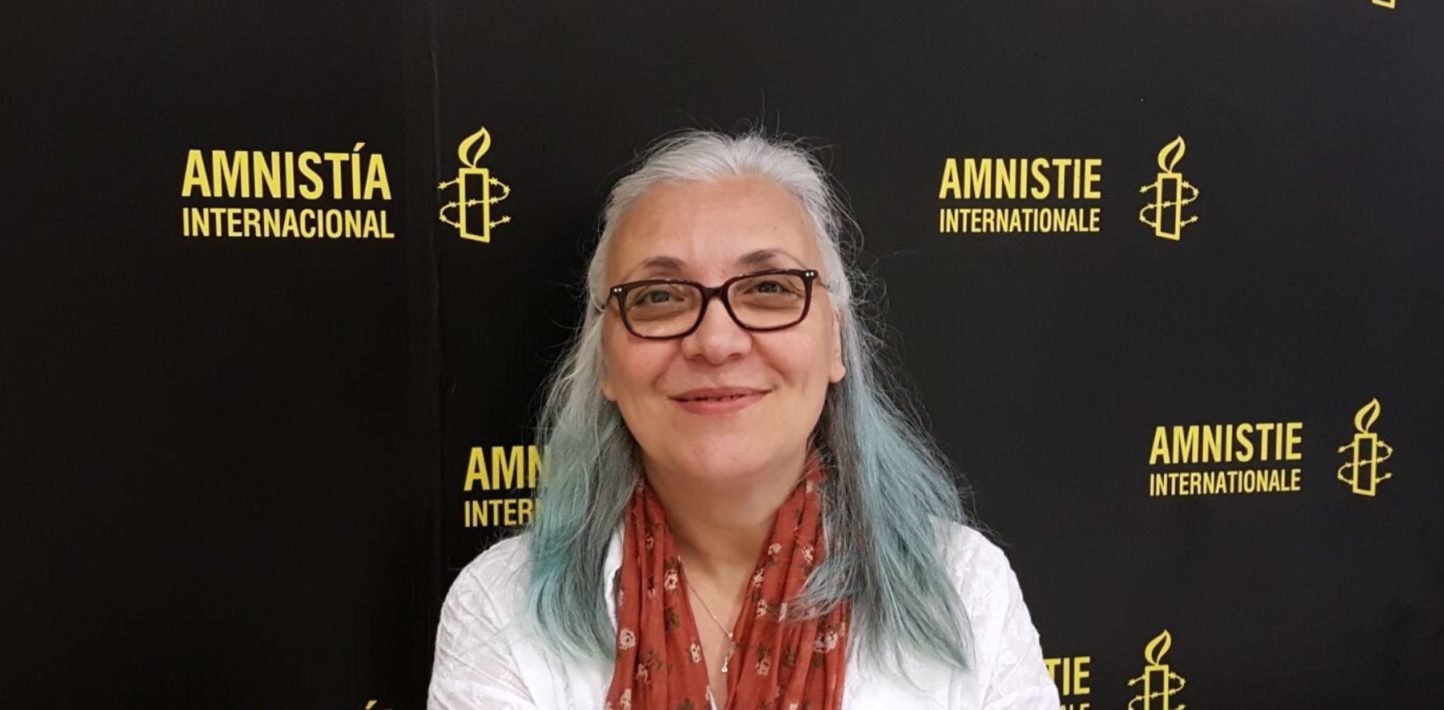In July 1998, Amnesty International wrote to the Turkish government demanding the release of the then Mayor of Istanbul, who had been jailed after reading a poem at a demonstration. Amnesty International had declared him a prisoner of conscience and launched a global campaign on his behalf. His name was Recep Tayyip Erdoğan.
Nineteen years later, and now President, it is the same Recep Tayyip Erdoğan who presides over the detention of some of Turkey’s most prominent human rights defenders and activists, including Amnesty International Turkey’s two leaders.
Nineteen years after we campaigned to free Recep Erdoğan from jail, he presiding over the detention of our colleagues
Salil Shetty, Amnesty International
On Wednesday morning, eight human rights defenders, among them Amnesty International’s Turkey Director Idil Eser, were detained while attending a workshop, along with the two international trainers. For over 28 hours, no one including their loved ones, knew where they were being held. Their detention has now been authorized for seven days, and could be extended for a further seven days without them being brought before a court.
Their lawyers have told us that the group are facing a criminal investigation on the absurd suspicion of being members of an ‘armed terrorist organisation’. With decades of solid human rights work between them, the accusations would be laughable were the situation in Turkey not so extremely grave for anyone who dares to criticise the government.
Idil’s detention comes less than a month after the Chair of Amnesty International Turkey, Taner Kılıç, was remanded in custody on baseless charges. Accused of supporting the Fethullah Gülen movement – an organisation he has openly criticised – Taner is now in prison, waiting for an indictment and a trial. This could take months. If found guilty of membership of the movement he faces up to 15 years in prison.
These detentions highlight the precarious situation facing human rights activists in Turkey – a country which has seen more than 50,000 people jailed in the crackdown that followed the attempted coup almost exactly one year ago.
Indeed, if anyone was still in doubt of the endgame of Turkey’s post-coup crackdown, they should not be now. There is to be no civil society, no criticism and no accountability in Erdoğan’s Turkey.
The eight human rights defenders are the latest victims of President Erdoğan’s ruthless and arbitrary crackdown on any and all criticism of the authorities in the country. Since the failed coup attempt, President Erdoğan has embarked on a full scale assault on civil society that many observers in Turkey view as unprecedented.
There are currently ongoing criminal investigations against approximately 150,000 people. In the last year, 160 media outlets have been shut down and an estimated 2,500 journalists and other media workers have lost their jobs. With more than 130 journalists and others who work in the media behind bars since the attempted coup, Turkey now jails more journalists than any other country. One third of all imprisoned journalists in the world are held in Turkish prisons.
Meanwhile, tens of thousands of perceived government critics have been jailed and more than 100,000 public sector employees summarily dismissed.
In the wake of the arrest of Idil and the other nine, governments across the world promptly condemned the actions of the Turkish government with a spokeswoman for the U.S. State Department saying that the U.S. was “deeply concerned” and stressing that “more voices, not fewer, are necessary in challenging times.”
If world leaders meeting at the G20 fail to stand up for Turkey’s beleaguered civil society now, there may be nothing left of it by the time the next summit comes around
Salil Shetty, Amnesty International
While these statements are welcome, the international response to Erdoğan’s actions over the past year has been conspicuous by its absence.
The past two days have provided a prime opportunity to redress this failure. The world’s most powerful leaders have gathered in Hamburg for the G20 summit, with the Turkish President in attendance.
In the build-up to the summit, German Chancellor Angela Merkel expressed her desire to make the strengthening of civil society a key item on the agenda and extolled the importance of a vibrant civil society in ensuring free societies.
These are fine words. But Idil, Taner and the scores of jailed human rights activists need more than words. If world leaders meeting at the G20 fail to demand their immediate release and stand up for Turkey’s beleaguered civil society now, there may be nothing left of it by the time the next summit comes around.
This article was first published here in the Guardian.
Click here to take action to demand the release of the detainees.


